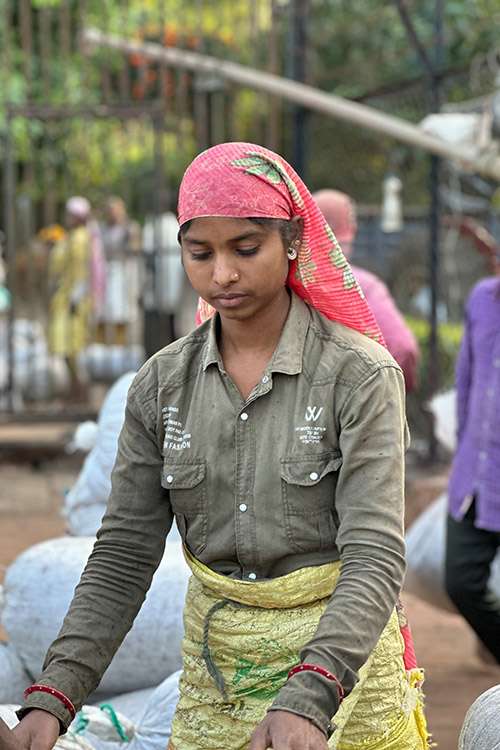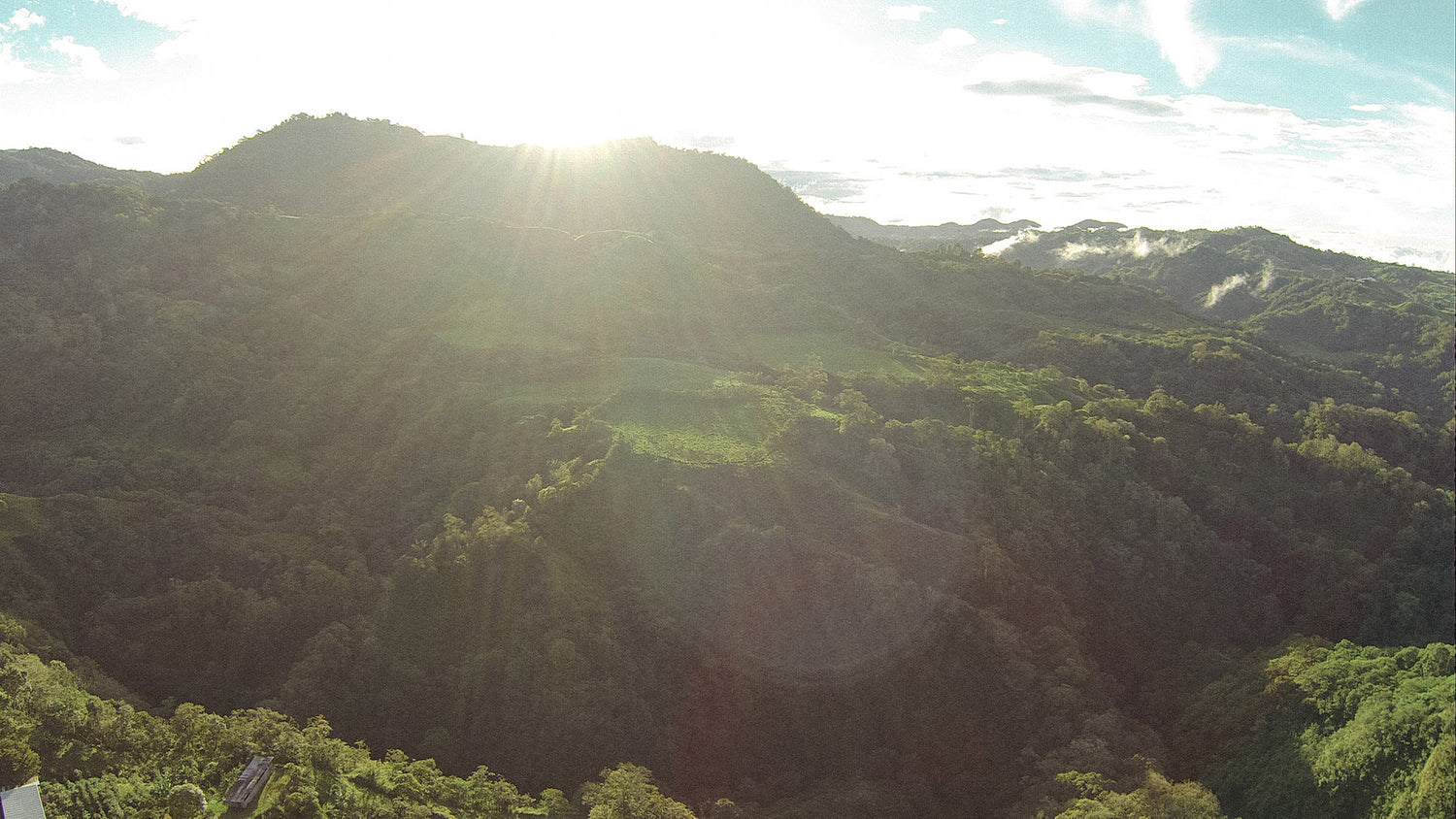We have had new green coffee from Hoysala in India for some time now. For example, in our Out of the Dark. So it was time to get to know the farmers and the other people involved in the Indian state of Karnataka. Personal contact with our farmers and a look at the local working methods is very important to us. Off we go to Bangalore!
Coffee trip to India - Day 1
We arrive in India at Bangalore airport. We are overwhelmed by the impressive architecture of the airport. It opened in 2008 and was originally designed to handle 3.5 million passengers per year. However, it was later redesigned to handle around 12 million passengers per year . At the airport we are picked up by the people from Kaffee Fausto, who are making this trip with us.
Immediately after landing, we make our first acquaintance with real Indian food in India. For just 2.50 euros, we are not only fed the best quality food, but are also extremely full.
Then it's off to the west on what should only be a 5-hour drive to the coffee region of Chikmagalur. Unfortunately, the journey is delayed by a public holiday and all the "weekend warriors" who are also on their way out into nature.
Finally , we arrive at Sunil's farm. Welcome to "Rosedale Estate"! We will spend the next few days here. To start with, there is a guided tour of the estate, including a visit to the Hoysala Temple and a detailed history lesson on the history of the Hoysala dynasty.
At the end of the day we go on a night safari around the farm.
Coffee trip to India - Day 2
Well rested and no longer tired from the journey, on the second day we take a closer look at the working methods at “Rosedale Estate”.
There we get a detailed insight into the preparation and cultivation methods of Rosedale Estate. The concept is not to add anything to the soil. This means above all no chemicals, but also no naturally produced fertilizers whose raw materials do not come from the estate. The greatest strength of Sunil and his team is the complete soil coverage with plants and legumes.
After a late breakfast we continue north to Jeelan Estate, the kingdom of Mohan .
Mohan works chemical-free, just like Sunil, and does not use any purchased pesticides. At Jeelan Estate, the fertilizers are produced in-house and the 5M principle is followed, which Mohan himself explains in the video.
Mohan also shows us how pepper is processed, which also grows on the estate. Pepper and its processing also fascinate us.
After another excellent meal on the farm and a cold local beer, we end our second day in India satisfied.
Coffee trip to India - Day 3
After breakfast and a morning farm tour with routine inspection and further insights into the working methods at Rosedale Estate, we continue on to Mangaluru . This is a good 5 hours further west by the sea. There we visit a coconut farm owned by Sunil, which is located directly on a private beach. The day is already over because of the long drive and we prepare for the next day.

Coffee trip to India - Day 4
We visit the Monsoon Malabar halls, where the green coffee of the same name is produced. Monsooning is a processing method. It comes from this very region, Malabar, which is the west coast of the state of Kerala. During monsooning, the beans are laid out on the ground in open warehouses for fermentation in a 10 to 15 cm thick layer and exposed to the monsoon. The monsoon winds have a very high humidity. But since the warehouses have no windows, the wind blows over the spread out beans. They absorb the moisture and begin to ferment. During this time, the coffee is regularly raked and turned. Monsooned Malabar coffee is particularly mild. It has hardly any acidity, but a spicy, almost earthy taste with notes of licorice and coriander.
Afterwards we head back to Chikmagalur – another 5 to 6 hours drive, depending on traffic.
Coffee trip to India - Day 5
A cupping and roasting day lies ahead of us. We visit the Sunshine Superfood roastery in Chikmagalur. There they have two modern Probat roasters, a very innovative packaging department and all kinds of modern products such as drip bags and coffee sticks.
We are very excited about lunch. We go to a so-called home kitchen. Here, people have converted part of their house, usually the front, into a kind of restaurant. What we can also mention is that Indian cuisine in India cannot be compared in any way with Indian cuisine in Europe. Here, each district has its own range of spices, completely different dishes and other peculiarities. What's more, it tastes much better than here in Germany.

In the afternoon there will be a cupping marathon: 4 tables packed with coffee from the new harvests, Arabica and Robusta, as well as a very interesting Liberica. Spoiler alert! A Liberica will soon be available in small quantities at Wildkaffee. You can expect a coffee that tastes like liquid cinnamon rolls.
Afterwards we end the evening with a good meal.
Coffee trip to India - Day 6
We begin our penultimate day in India with a visit to the Dry Mill. There we see the export halls, the processing plants and much more.
Then we set off on a two-hour drive into the jungle. There is the Bhadra Tiger Reservoir, part of the Bhadra Wildlife Sanctuary. The reservoir is part of the Tiger Project, which is concerned with the conservation of Bengal tigers. 33 tigers and many other species of animals such as elephants, gaurs and leopards currently live there. We ended the day with an evening boat trip through the reservoir.

Coffee trip to India - Day 7
The last day of our trip to India has arrived. We set off on an exciting jeep safari, where we see lots of wild animals: elephants, leopards and also gaur, the largest wild cattle species. Unfortunately, we don't see any tigers.
Then we unfortunately have to leave again and drive to Bangalore airport. There we can enjoy a delicious dinner and then head home.


